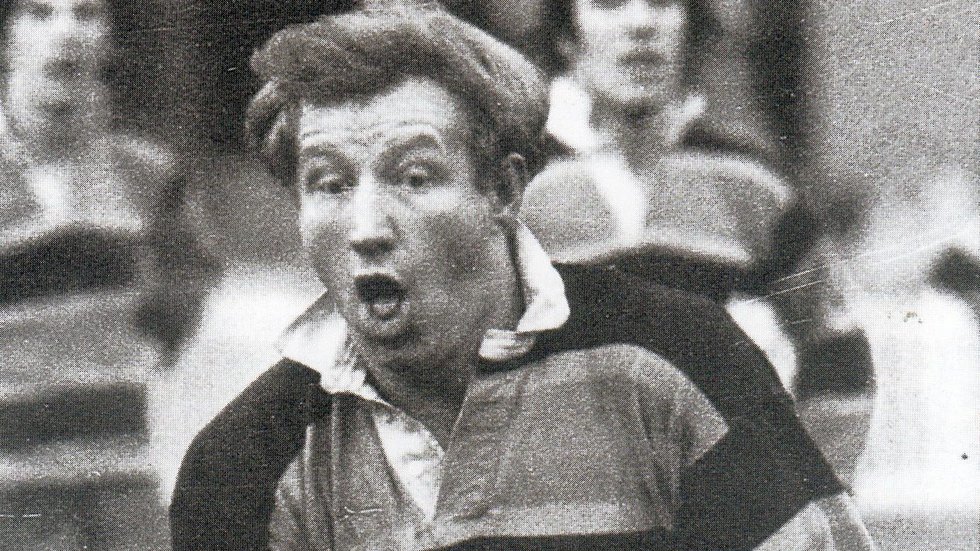- Played313
Bio
Years: 1962-79
England caps: 16 caps
British and Irish Lions tours: South Africa 1968
Administrator
Committee Member
Club President
Honorary Secretary
President of the RFU
Considering that, by his own admission, he was pretty ambivalent towards rugby, Bob Taylor did not have that bad a career in the sport. Indeed, there are few men to have had as much an impact off the field as on it, holding a wide variety of administrative roles, including one of the highest in the land.
“I rarely watched the Saints as a boy and didn’t have any boyhood heroes,” Taylor told Brian Barron in ‘Nothing Without Labour’. And had he turned his childhood promise at football into a professional contract when offered one by Northampton Town then the soon-to-be international flanker would have been lost to rugby union forever.
His father might have been happy, though.
“My dad used to take me to the Cobblers and would have been chuffed if I had given soccer a go. But all my friends played rugby and I didn’t fancy it.”
So rugby it was, and Taylor made an immediate impact on the Saints first team, bursting onto the scene as a raw 20-year-old to make 22 appearances in his debut season and displacing vice-captain Steve Wilcock from the side in the process.
The 1962/63 Saints that Taylor was a part of was a side that was on something of a slide, with players growing old together before ultimately breaking up through retirement, injury and simple unavailability.
However Taylor was the shining light, even if his playing style could be somewhat infuriating for his coaches and admirers, including the great Don White, who would later select Taylor for England.
Described by Barron as someone who ‘always gave the impression he was keeping something in reserve’, Taylor was, ‘like all great players…always seemed to have that little extra time’.
The 1950s had seen the Saints dominate British club rugby with a vintage including the likes of Dickie Jeeps, Jeff Butterfield, Ron Jacobs and White. And while Taylor’s maiden season was somewhat forgettable it was not long before he was part of a new generation, playing alongside players such as David Powell, Keith Savage and Andy Hancock, individuals who would earn international honours within the next few seasons.
As well as starring in the back row, Taylor was ideally placed to help organise training sessions, too, having trained as a PE teacher, and he would stay in this profession at Wellingborough School and Lings Upper School for over 30 years.
1964/65 was a memorable season as the Saints went on an 18-match unbeaten run, with Taylor and Hancock to the fore, and Savage and Powell heading on the British and Irish Lions’ tour to New Zealand a year later.
By then Taylor was also in the England side, and his time in the red shirt would come in 1968’s trip to South Africa, a tour on which he would play 14 times, including all four test matches. It was a positive end to a year which had also seen Taylor captain the club despite having injury problems and other things on his mind.
“The leadership probably came a bit too soon,” he reflected in ‘Nothing Without Labour’. “There were a number of problems. For a start I got a horrendous ankle injury, which meant I missed a lot of the early games. Also my priority at the time was getting England recognition.
“I would have liked another chance but it never came.”
Despite that Taylor would nevertheless be handed the armband for England in 1970’s Five Nations trip to France and captained the England and Wales team in the RFU’s centenary test later that same year against Scotland and Ireland at Twickenham, a side which was a who’s who of rugby at the time, the likes of full back JPR Williams, half-backs Barry John and Gareth Edwards, and front rowers John Pullin and Keith Fairbrother.
Taylor’s own final cap came later that season, but he would continue to turn out for the Saints for the remainder of the 1970s, retiring with over 300 appearances and nearly 300 points to his name, as well as representative honours with the East Midlands, Midlands and Barbarians.
That might have been enough for some people, but not Taylor, who went on to establish himself as a pre-eminent administrator at a number of levels. A committee member at Franklin’s Gardens from 1970, he was club president between 1993 and 95, then becoming honorary secretary of Northampton RFC from 1995 until the members’ club was dissolved in 2013.
Taylor has also been the chairman of the East Midlands Rugby Union since 1998, and has been on numerous RFU committees, too. Perhaps the ultimate honour was bestowed on him in 2007, when he was appointed as president of the RFU, only the third person from Franklin’s Gardens to hold the position.
He remains actively involved in the East Midlands RU and with the Mobbs Memorial Match, and is a familiar face at Franklin’s Gardens.






